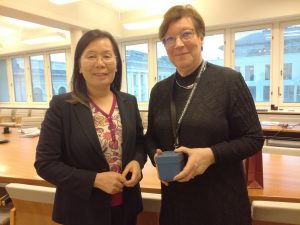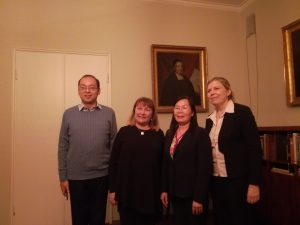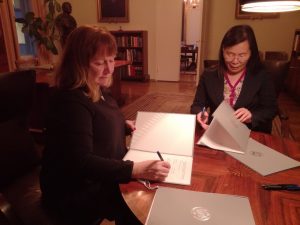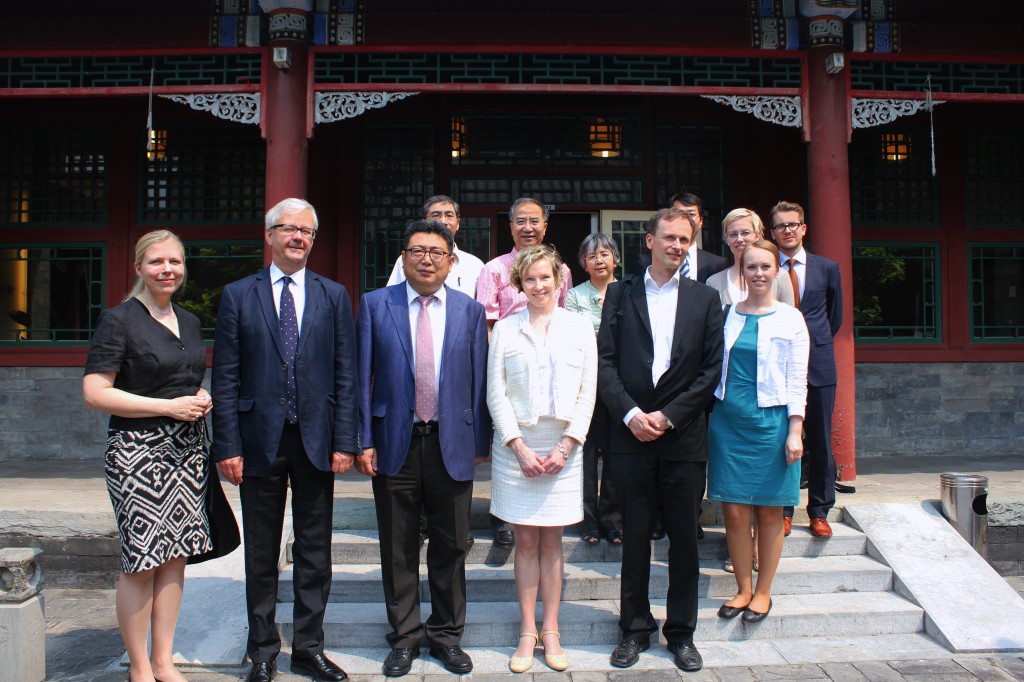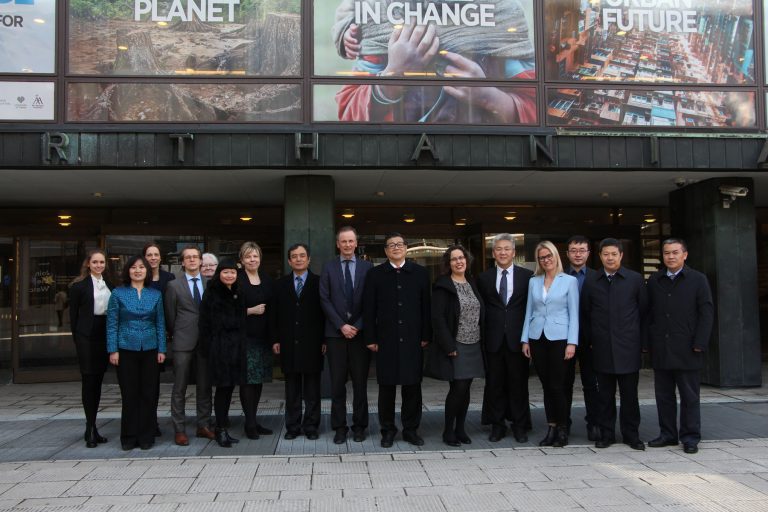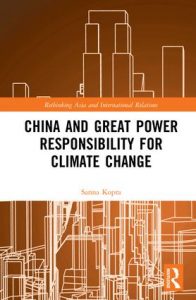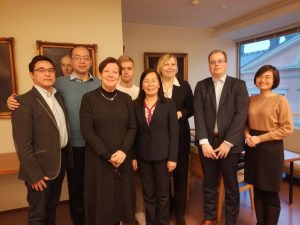
To mark the long history of extensive collaboration, Peking University Law School and the Finnish China Law Center hosted an afternoon seminar on Labour and Social Law.
The seminar has held on Friday 13 December 2019 at the University of Helsinki.
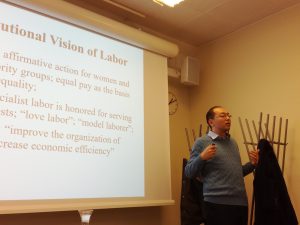
The Seminar opened with a presentation by Yan Tian, Assistant Professor & Assistant Dean at Peking University Law School on the topic ‘Towards a Constitutional Theory of Chinese Labor Law’. Professor Yan first described three constitutional visions of labour as arm, spine and embryo of the Constitution. Among the three, the vision of labour as the spine of the Constitution, which makes the Constitution paralyzed if lost is most popularly perceived among Chinese academics. He noted that labor is an important means to achieve the five major values of the Constitution, which comprise of livelihood, democracy, equality, honor and efficiency. Professor Yan went on to examine the constitutional commitment of China’s 1995 Labour Law. The Law has incorporated all the five values of constitutional labor in Chapter 1, particularly in Articles 1, 3, 5, 6, 7, and 8. However, he observed that the commitments have not been perfectly implemented in practice. For livelihood, there has been unfair distribution for labor. In the distribution system in China, the Government and businesses take a very big share. There is only a small part left for the workers. For democracy, it has been a hollow hope for most Chinese workers. The union system is bureaucratic and fails to represent the real interests of the workers. Regarding equality, in recent years, gender discrimination has been striking back. People now begin to challenge whether it is necessary to have so many women in workplaces. Relating to honor, labour is presumed by many as providing less earning and therefore, less respectable. Finally, about efficiency, debates over the inflexibility of labour law has arised in recent years. It is arguable that the labour law system is too rigid to able to accommodate the changing reality of Chinese workplace, especially in informal labour. In his final remark, Professor Yan suggested that labour law must not only keep up with the general trend of labor relations reform, but also be able to incorporate constitutional orders into the reform process, while serving as the legal platform to intergenerational synthesis.
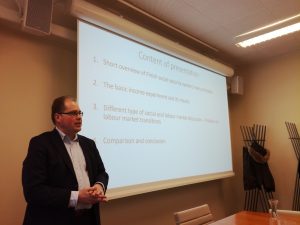
In the next part of the Seminar, Jari Murto, Assistant Professor in Labour and Social Law at the University of Helsinki gave a presentation on ‘The Basic Income Experiment in the context of Finish Social Security System’. Professor Murto began with a short overview of the Finish social security system. The system is driven by the principle of universality, according to which the system covers all persons living (permanently) in Finland, and the principle of causality which renders right to social security benefit or services based on the specific reason (unemployment, illness, childbirth or studies, etc). The Finnish social security is divided into residence-based and employment-based social security. Residence-based social security is financed by taxation and administered by the Social Insurance Institution Kela. Employment-based social security is based on employee status, and paid for by employment related payments and contributions made by employee and employer, independent insurance companies and unemployment funds and labour market social partners. He next introduced the Basic Income Experiment carried out by the Finnish Government during 2017 and 2018. The purpose of the experiment was to gather information on the effects of basic income on labour market activities, and to examine social security models in the context of changing labour market as well as societal changes. The experiment met with criticism that it only choose unemployment people as target group, and exclude persons working in part-time employment relationships. Professor Murto finally discuss different type of problems in transitions in the labour market. The issues involve how to ensure employment rate of 75 %, how to guarantee that companies are able to recruit skilled work force and lack of skilled work force does not follow problems to business, and how to minimize risks to individual person relating interruptions and transitions in the labour market.
Speakers’ bios:
Yan Tian is an Assistant Professor & Assistant Dean at Peking University Law School. In addition to constitutional law, Assistant Professor Yan’s research interests include labour law and administrative law. He has published a monograph on employment discrimination law and several articles in the Chinese, English, and Korean languages. Previously, Professor Yan served as Post-Doctoral Fellow in the Peking University Law School. In addition to Bachelor and Master degrees from Peking University, Assistant Professor Yan has J.S.D. and LL.M. degrees from the Law School of Yale University.
Jari Murto is an Assistant Professor in labour and social law at the University of Helsinki. His main research interests are related to the determination on terms of employment as well as development of labour law norms, norm system and doctrines of labour law. Professor Murto’s dissertation on “Company specific Group Norms” (2015) was a systematization of legal norms created at the company level concerning groups of employees. In the area of social law Murto’s main research interests are related to transitional labour market and legislation institutions in different type of transitions. Before University of Helsinki, he worked at the University of Turku.

